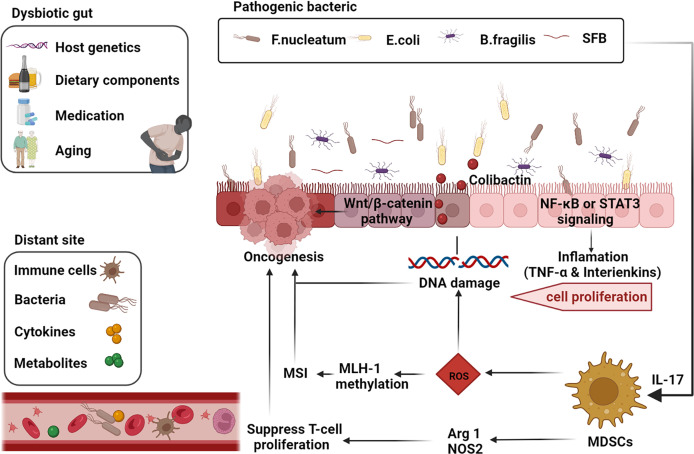Figure 1.
Gut-microbiome-mediated mechanisms of oncogenesis and progression. Factors such as the host genetics, unhealthy dietary components, medication, and aging cause gut dysbiosis. Inflammatory markers such as TNF-α and interleukins such as IL-17 are activated by the corresponding pathogenic microbial strains via the NF-κB or STAT3 pathways thereby inducing cell proliferation. Microbial strains such as Segmented filamentous bacteria (SFB) are effective inducers of Th17 cells in the SILP. E. coli induces DNA damage and thus promotes tumorigenesis through the release of virulent substances such as coliphage. Clostridium nucleatum activates the differentiation of myeloid-derived suppressor cells (MDSCs) and further induces reactive oxygen species (ROS), leading to MutL homolog 1 (MLH-1) methylation and microsatellite instability (MSI), leading to tumor progression. Activated MDSCs also inhibit T cell differentiation and promote tumor progression through activation of Arg1 and NOS2-mediated antitumor immunity (adapted from 16). F, nucleatum also stimulates cell proliferation through activation of the Wnt/β-linked protein pathway. Many components of our daily diet are metabolized by bacteria in the digestive tract and produce the corresponding metabolites such as secondary bile acids, which promote carcinogenesis. Furthermore, intestinal microbiota, microbial metabolites, immune cells and cytokines can also produce carcinogenic effects at different sites in the distal part of the body through blood circulation. (The figure was created with Biorender.com).

